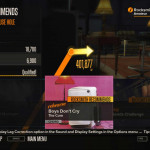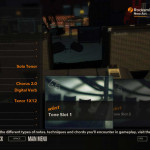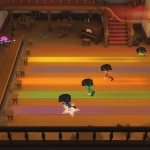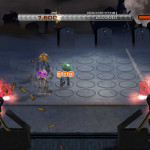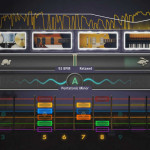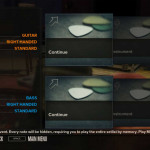Coming out in 2011 towards the end of the peripheral-based music and rhythm craze, Rocksmith is perhaps one of the most epic expressions of that somewhat long-lived fad. Developed by Ubisoft San Francisco, the game even came packed with an Epiphone Les Paul Junior guitar to use with the game.
How to Download Rocksmith
This game and its newer version called Rocksmith 2014 can be downloaded from Steam, PlayStation Store of Microsoft Store. Of course, you will also need the guitar to enjoy the game and a cable which will connect it to the console or the PC.
The Game Review
Not only the real guitar controller has set Rocksmith apart from the Rock Band and Guitar Heroes of the world but also gave an added incentive to purchase it that was quite surprising: you actually learned how to play the guitar.
Heck, Ubisoft even added a later game mode for bass guitars. But players weren’t just limited to their own equipment. They could also hook up their own guitars via Real Tone cable, a USB-like extension that translates your fretboard movements into on-screen responses.
What this did was address longstanding criticism of the peripheral-based rhythm genre. People wondered why games didn’t just teach players how to use actual instruments rather than simulated, Fisher Price-esque versions of them.
Rocksmith eliminated this concern, but there was also a bit of the Rockband and Guitar Hero magic lost in the process.
The basic mode at the game’s core simulates a career mode found in the other games but with the added twist of incorporating actual musical learning into the process.
Notes are represented graphically and various indicators for when to strum which string as well as how long to hold a note guide the player through the song.
Successfully playing songs rewards players with Rocksmith points that can be used to open up other pathways in the game.
In terms of adjusting the difficulty of the game, the title does this in an ingenious way. Like Guitar Hero, songs become harder as you move up the career ladder but, since you’re learning how to play an actual guitar, the game adds difficulty by increasing a song’s note density – or how many notes you will have to play during the song.
Warmly received by critics and gamers alike, the title exists as a kind of curiosity now.
Addressing many of the complaints about peripheral music games, Rocksmith ignored and largely neutered the competitive element present in the Guitar Hero and Rockband series of games.
It was tough to be competitive in this music title – a game about teaching more than anything else – but playing with and against friends in the other games was part of their core identity.
Unsurprisingly, this is also a core part of many successful games and it is a spirit that the game failed to capture.
Overall, Rocksmith offers an interesting look into one of gaming’s biggest trends. Modern players might enjoy it for its instructional elements, or even its soundtrack, but the gameplay is not as compelling now as it was in 2011.
Fans of the music game genre should give this game a look. Aside from its rocking soundtrack (a staple for the genre), Rocksmith has some interesting gameplay mechanics and was really innovative for its time.



